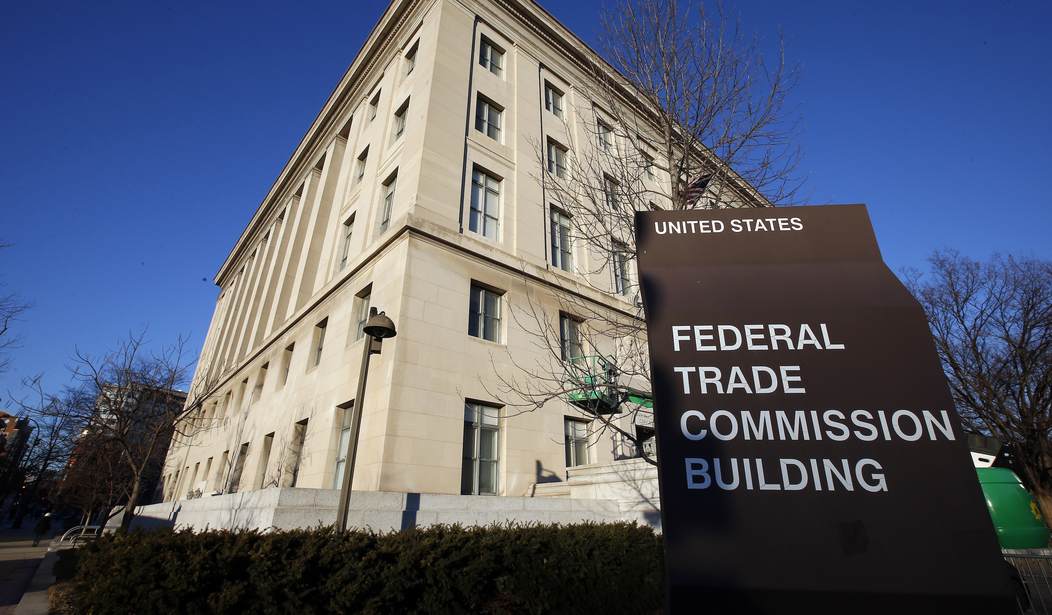The Federal Trade Commission (FTC) under the Biden administration has once again proven itself focused on maligning market forces in our economy rather than the facts or the wellbeing of consumers. A recent Commission report on pharmacy benefit managers (PBMs) is the latest installment of an agenda designed to justify the further erosion of market forces in our health care system.
The Commission’s unbalanced and unempirical report strongly implies scale is inherently harmful. The opposite is true. In the case of PBMs, scale enables these companies to effectively negotiate savings from pharmaceutical companies on behalf of health plan sponsors, like America’s employers.
This role provides a critical counterbalance to the pricing power of big drug companies, delivering billions of dollars in savings that health plan sponsors—mostly employers—pass on to their employees and their families through lower cost-sharing and lower premiums.
In perpetuating one-sided discussions surrounding PBMs, the Biden administration has adopted the slogans and talking points used by the pharmaceutical industry—disregarding the pharmaceutical industry’s strong financial incentive to encourage restrictions on PBMs. After all, the price concessions (savings) PBMs secure from drug manufacturers come directly out of pharmaceutical companies’ bottom lines.
Adopting frequently used pharmaceutical industry rhetoric, the FTC report attempts to malign PBMs as valueless “middlemen.” The report makes little attempt to corroborate its assertions by reviewing the findings and data from countless investigations and analyses conducted by government agencies, economists, academics, and other experts. It instead relies almost exclusively on anecdotal and cherry-picked evidence.
Recommended
That is not just my opinion. FTC Commissioner Andrew Ferguson notes that the FTC report “relies heavily on public comments.” Ferguson explains many of those comments were anonymous and that the Commission did not “have any method for verifying the accuracy of a single word they contain.” Yet, the report “treats their contents as fact.”
Ferguson further explains many other comments were submitted by “entities who contract with PBMs … [who] may have an incentive to instigate regulatory action against PBMs to improve their bargaining position.”
Perhaps the FTC relies on anecdotes and incendiary rhetoric because systematic analysis and actual data invalidate their pre-determined conclusions, by demonstrating that PBMs do, in fact, secure savings.
PBMs secure $148 billion in overall savings every year for consumers and health plan sponsors, like employers and government agencies, according to an analysis published by the National Bureau of Economic Research (NBER) in 2022.
These savings often take the form of rebates. Drug manufacturers compete against one another for formulary placements by negotiating rebates with PBMs. PBMs act as aggregators of health insurance plan sponsors’ purchasing power, which creates greater negotiating power than most individual insurers or employers would have on their own.
The FTC repeats the common refrain from the pharmaceutical industry that drug prices are higher due to PBM-secured rebates. Expert analyses show the opposite.
The Government Accountability Office (GAO) concluded in 2019 that savings from rebates negotiated by PBMs “offset [Medicare] Part D spending by 20 percent, from $145 billion to $116 billion” in a single year.
Alex Brill, CEO of Matrix Global Advisors (MGA) and former policy director and chief economist for the U.S. House Committee on Ways and Means, found in a report published in January 2024 that prescription drugs with the largest list price increases do not even have rebates.
Some policymakers who have bought into the false premise that rebates increase, rather than lower, costs have introduced misguided policies that would raise health care spending, exacerbating inflation in the health care system. For example, proposals have been floated in Congress to ban market-based incentives that allow PBMs to share in the rebates they secure. This proposal alone would increase health care premiums by more than $26 billion annually for those relying on employer-sponsored health insurance, according to a 2023 Brill analysis.
Similar proposals have been floated and analyzed in the past. Both the Centers for Medicare and Medicaid Services (CMS) and the nonpartisan Congressional Budget Office (CBO) reviewed a U.S. Department of Health and Human Services (HHS) rule introduced during the Trump administration that would have banned PBMs from negotiating rebates in the Medicare Part D program. In separate reports, both concluded the policy, never implemented due to intervention from Congress, would have increased costs for taxpayers by nearly $200 billion, hiked health care premiums on seniors by 25 percent and increased pharmaceutical company profits.
Health care spending would increase without rebates because rebates are cost savings that would otherwise flow toward big drug companies’ bottom line. The vast majority of rebates go to health plan sponsors and the people they cover. According to the 2019 GAO report, 99.6 percent of Medicare Part D plan rebates secured by PBMs are passed directly to those plans’ sponsors who, in turn, use those funds to lower costs for program beneficiaries, mostly seniors. According to an analysis published by The Pew Charitable Trusts that same year, 91 percent of rebates secured in the commercial health insurance market are passed on to those health plan sponsors, mostly employers.
Employers rely on these rebates to reduce health care cost-sharing for employees and offer more comprehensive benefits that help them compete in a challenging labor market. A 2023 national survey of employers conducted by The Coalition for Affordable Prescription Drugs (CAPD) found 90 percent of employers use rebates to enhance benefits or lower cost-sharing for employees.
Arguably, the most obvious question raised by all of this is why do the vast majority of health plan sponsors hire PBMs at all if they don’t realize value from their services?
The answer is simple. Because they do receive value, and the first and most fundamental kind of value PBMs provide is cost savings.
Pat Toomey served as a U.S. Senator from Pennsylvania from 2011 to 2023 and in the U.S. House of Representatives from 1999 to 2005. He serves as an adviser to the Pharmaceutical Care Management Association.

























Join the conversation as a VIP Member